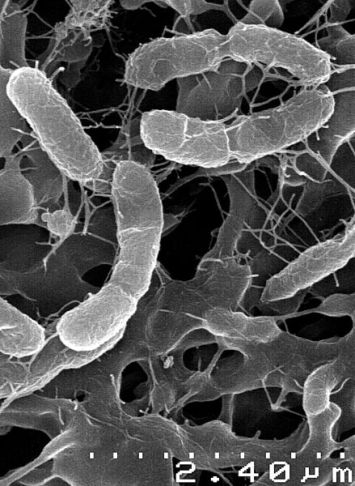Category:Bacteria
A typical bacterial cell is composed of an outer capsule, a cell wall, a cell membrane, cytoplasm containing nuclear material and, if motile, appendages such as flagella and fimbrae or pili. Some species of bacteria are more resistant to environmental influences than others, particularly those species of bacteria that are able to produce spores which can remain inactive until the appropriate environmental conditions prevail allowing the bacteria to resist conditions such as freezing, wet, dry or hot
conditions.
Bacterial classification
According to the International Code of Nomenclature of Bacteria ("The Bacteriological Code", revision of 1990) and the International Committee on Systematics of Procaryotes (ICSP), bacteria of veterinary interest are divided into 8 phyla:-
Phylum Actinobacteria (orders Actinomycetales and Bididobacteriales)
Phylum Cyanobacteria (the blue-green algae)
Phylum Fusobacteria (genera Fusobacterium and Streptobacillus)
Phylum Spirochaetes
Phylum Formicutes (classes Bacilli, Clostridia, Erysipelotrichi, Mollicutes)
Phylum Bacteroidetes (orders Bacterioidales and Cytophagales)
Phylum Chlamydiae
Phylum Proteobacteria (see entry under this name)
Pages in category "Bacteria"
The following 8 pages are in this category, out of 8 total.
